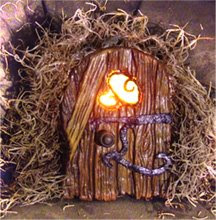A tiny shift, almost imperceptible, but a shift none-the-less. I feel it in my body, in the energy that surrounds us, in the timid little spark of light caught in the reflection of hubby's eyes.
"I think I'm feeling a bit better" Hubby spoke cautiously, so as not to upset that good feeling and make it go away.
Better? Feeling better? Oh joy!! Yippeee!
Are the antibiotics finally kicking in?
Is it Son's visit? Did he bring a sliver of light into my husband's soul? A change of focus, a shift from dark to light, as they sit together watching football on T.V.
But isn't that my job - to make him feel better? Aren't I the one to put light in his eyes, a smile on his face?
Maybe I've been holding on too tight. Trying too hard. Taking my role as "fierce protective dragon" a little too seriously; guarding my charge from upset and fatigue at all costs.
This Cold has forced me inwards. I have had to temporarily step down from being primary Caregiver and let Son take over for a while. I have had to "let go" a little bit, relax my hold. Is there a message for me in this too? Am I holding on too tight to this illness? To my role as Caregiver? Is it time to let go, release the reins a bit? Trust that I am doing all that I can and let Nature look after the rest?
Or is it just the atmosphere, the cool autumn winds sweeping away the old stagnant energy and replacing it with fresh and crisp air.
Whatever it is, hubby is beginning to smile again.
And that's good enough for me.
MARCH---a month of new growth and Spring Colors
23 hours ago








